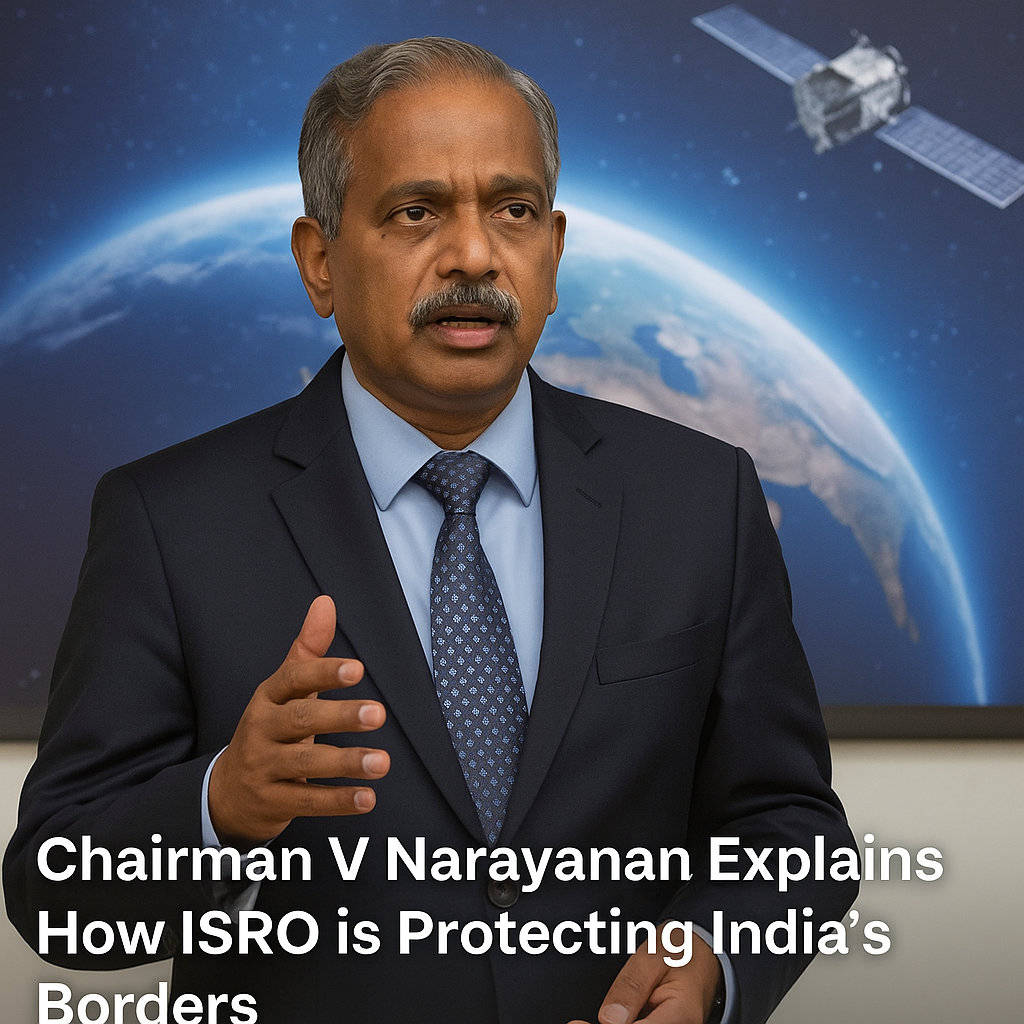Innovative Satellite Project of CalaxEye
In a notable development for India’s space sector, the startup CalaxEye is preparing to launch a constellation of satellites next year, marking a significant milestone in the country’s space exploration efforts. Founded in 2021 by alumni from the Indian Institute of Technology (IIT) Madras, CalaxEye is pioneering technology that promises to enhance satellite imagery capabilities in India. The core of their innovation is a sophisticated sensor designed to penetrate cloud cover and capture clear images even in adverse weather conditions and at night.
This technology is particularly valuable for regions like India, which experience a variety of weather patterns, including frequent cloud cover and monsoons. By providing high-quality imagery during these times, CalaxEye’s sensor addresses a critical need in various applications such as weather forecasting, agricultural monitoring, and disaster management. Accurate and timely data from satellites can significantly impact these fields, helping in precision agriculture, effective disaster response, and more reliable weather predictions.
CalaxEye’s approach highlights the potential of private sector contributions to space technology. Their advancements not only demonstrate technical innovation but also reflect a broader trend of increasing involvement from private companies in space exploration. This trend is supported by recent policy changes that have opened up the space sector to private players, offering new opportunities for startups to thrive.
Support and Reforms in the Space Sector
The Indian government’s decision to open the space sector to private companies in 2020 represents a transformative shift in the country’s approach to space exploration. Previously dominated by the Indian Space Research Organisation (ISRO), the space sector is now witnessing a surge of activity from private enterprises, driven by supportive policies and reforms.
This policy change allows private companies to own and operate satellites, which has led to the emergence of innovative startups like CalaxEye. By enabling private entities to contribute to satellite operations and space missions, the government has created a dynamic environment where new ideas and technologies can flourish. This shift is crucial for accelerating advancements in space technology and expanding India’s capabilities in space exploration.
In addition to policy reforms, the establishment of organizations such as InSpace has been instrumental in supporting private companies. InSpace serves as a facilitator for collaboration between ISRO and private sector entities, providing essential resources and expertise. This support includes access to technical guidance, infrastructure, and facilities that are critical for the success of space missions. For startups like CalaxEye, this assistance is invaluable in navigating the complexities of space technology and integrating their innovations into the broader national space program.
India’s Growing Space Ambitions
India’s space program has achieved several significant milestones in recent years, reflecting the country’s growing influence in the global space arena. One of the most notable achievements was the successful soft landing of Chandrayaan-3 on the Moon’s South Pole in 2023. This mission marked a historic first, demonstrating India’s advanced capabilities in lunar exploration and solidifying its position as a key player in space science.
Another major milestone was the launch of Aditya-I, India’s first solar mission, which aims to study the Sun’s outer atmosphere. This mission is a testament to India’s expanding space research portfolio and its commitment to exploring celestial phenomena beyond Earth.
India’s space program has high expectations for the future. The country plans to establish the ‘Bharatiya Antariksha Station’ by 2035, which is envisioned as a major center for space research and exploration. This station aims to be a hub for scientific research and technological development, contributing to India’s long-term space strategy.
In addition to the space station, India has set a goal to send its first astronaut to the Moon by 2040. This ambitious goal emphasizes India’s commitment to furthering human space exploration and demonstrates the nation’s resolve to push the envelope in space travel.
The upcoming Caganyaan mission is another key component of India’s space ambitions. This mission is designed to demonstrate India’s capability for manned spaceflights, with plans to launch a crew of astronauts into orbit and return them safely to Earth. To prepare for this mission, India will first conduct a precursor flight with a robotic astronaut named Vyommitra. This robotic mission aims to test critical systems and ensure the success of the manned mission, scheduled for 2025.
These advancements and future projects reflect India’s growing role in the global space community. The combination of government support, policy reforms, and private sector innovation is driving India’s progress in space exploration. Startups like CalaxEye play a crucial role in this ecosystem, contributing to technological advancements and expanding the country’s capabilities in space.
All things considered, the advances in India’s space industry point to a time of tremendous expansion and change. With a supportive policy environment, active private sector participation, and ambitious goals for the future, India is poised to make significant contributions to space exploration and technology.




